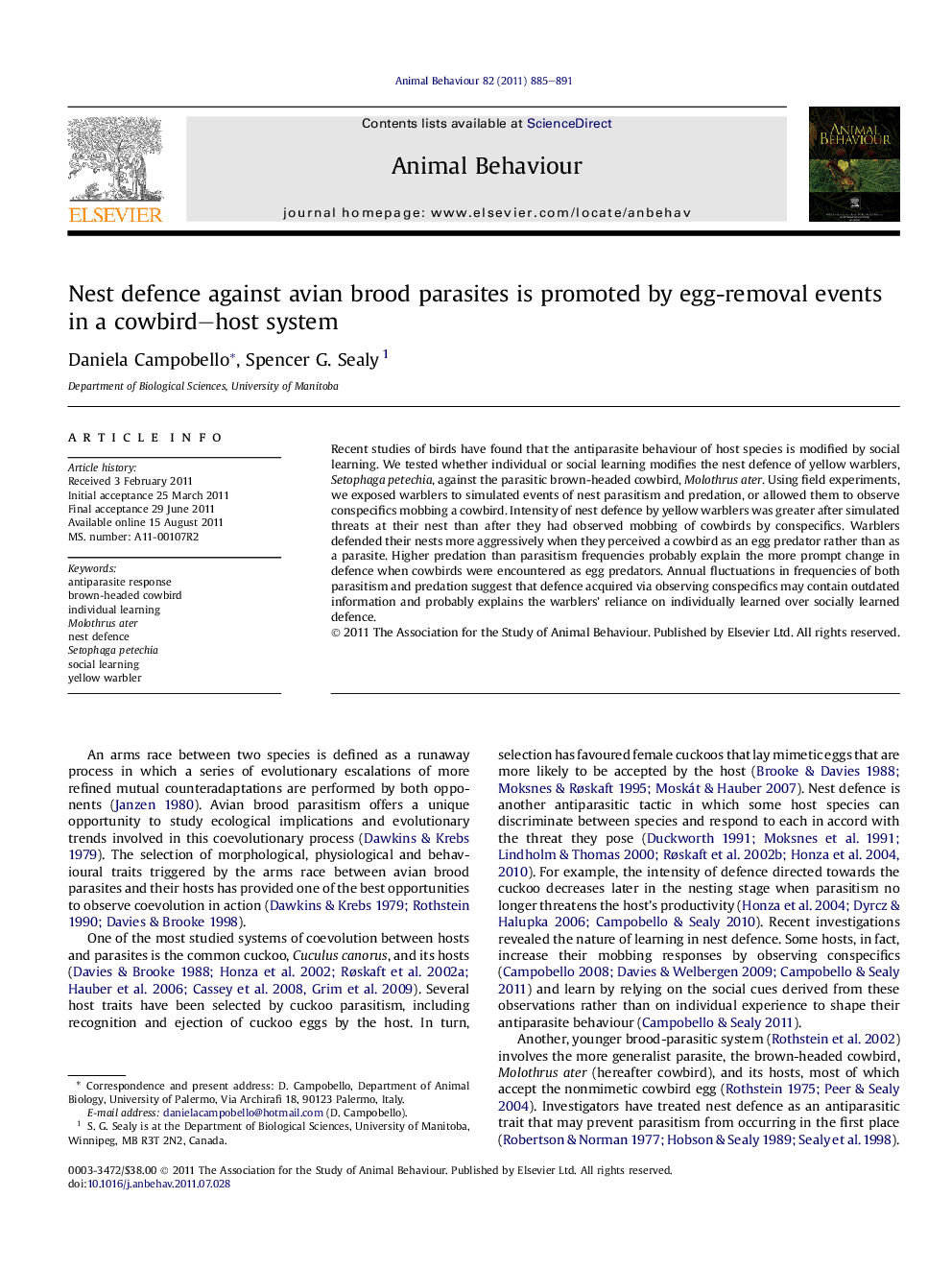| Article ID | Journal | Published Year | Pages | File Type |
|---|---|---|---|---|
| 2416659 | Animal Behaviour | 2011 | 7 Pages |
Recent studies of birds have found that the antiparasite behaviour of host species is modified by social learning. We tested whether individual or social learning modifies the nest defence of yellow warblers, Setophaga petechia, against the parasitic brown-headed cowbird, Molothrus ater. Using field experiments, we exposed warblers to simulated events of nest parasitism and predation, or allowed them to observe conspecifics mobbing a cowbird. Intensity of nest defence by yellow warblers was greater after simulated threats at their nest than after they had observed mobbing of cowbirds by conspecifics. Warblers defended their nests more aggressively when they perceived a cowbird as an egg predator rather than as a parasite. Higher predation than parasitism frequencies probably explain the more prompt change in defence when cowbirds were encountered as egg predators. Annual fluctuations in frequencies of both parasitism and predation suggest that defence acquired via observing conspecifics may contain outdated information and probably explains the warblers’ reliance on individually learned over socially learned defence.
► We tested whether individual or social learning modifies nest defence of yellow warblers against cowbirds. ► Warblers experienced simulated nest parasitism/predation or observed conspecifics mobbing a cowbird. ► We provide the first evidence that yellow warblers learn from direct experience. ► Warblers’ antipredator responses were stronger than their antiparasite responses to cowbirds. ► Results suggest that the greater prevalence of predation enhances defence through perceptual learning.
